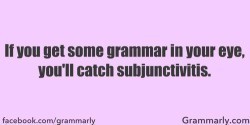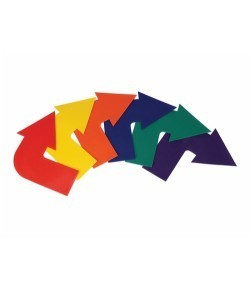Arlene Miller's Blog, page 68
July 20, 2013
If I Were in a Subjunctive Mood…

Verbs are active little things. If you have been hiding under a rock and don’t know what a verb is, it is an action word like jump, think, write, read, eat, hide.….or a state of being like the verb to be (and its forms: are, am, is).
Verbs, of course, have tense, which tells you when something happened. I am running (present tense) indicates a different time than I was running (past tense).
Verbs also have voice: active or passive. When a verb is used in the active voice, the subject is performing the action of the verb. When a verb is used in the passive voice, the subject is not doing anything. Here are examples:
Active Voice: I am driving to the mall.
Passive Voice: I am being driven to the mall.
Verbs also have mood. There are three moods:
Indicative is the usual mood. (Don’t worry about this one.)
Imperative is the command mood. (Don’t worry about this one either.)
Subjunctive is the other mood, You might have to worry about this one.
Subjunctive mood is used for sentences that express demand, request, necessity, urging, resolution, wishful thinking, and improbability. Generally, we use the subjunctive without even thinking about it. It is only the last two (wishful thinking and improbability) that trip us up — that is, if we are native English speakers. I can see where the other uses would be problematic for those whose native language isn’t English (although other languages have subjunctive mood as well).
All right, already! Can we have some examples here? Of course.
Demand: I insist that I be allowed to go! (not that I am allowed to go)
Request: The parents have asked that they be notified if Johnny fails a test. (not that they are notified)
Necessity: It is necessary that I be given enough money to cover expenses. (not that I am given)
Urging: We strongly suggest that Johnny be given an A on his report card. (not is given)
Resolution: It was decided that I be the chair of the decorations committee. (not that I am)
The above examples are all in subjunctive mood.
Okay. Those were pretty easy, and I am sure you use them without even thinking about it. Of course, you can use the other verb (in parentheses), but it has a different meaning, and will not imply demand, request, necessity, urging, or resolution.
Examples:
I told you that I am allowed to go out on Friday nights. (no demand here)
The parents are notified every time Johnny fails a test. (no request here)
I hope that I am given enough money to cover expenses. (no necessity here)
Johnny is being given an A on his report card. (no urging here)
I am the chair of the decorations committee. ( no resolution here)
The verbs in the above sentences are indicative mood.
Wishful Thinking: This is one of the subjunctive uses that trips us up. Whenever you use wish, you need to use the subjunctive mood.
Examples:
I wish I were going to Paris with you. Not I wish I was going to Paris with you.
He wishes he were taller. Not He wishes he was taller.
Improbability: This is the other subjunctive use that trips us up. When you use an if or as if clause, use the subjunctive if the sentence implies improbability.
Examples:
If I were you, I wouldn’t go to Paris in the winter. Not If I was you, I wouldn’t go to Paris in the winter.
She acted as if she were the boss. Not She acted as if she was the boss.
Many people do not use the subjunctive mood with wish and if these days, but it is still correct. There are other tenses and verbs, of course, that take subjunctive, but it is the examples above that are the most commonly incorrect.
If I were a rich man, da-da-da-da-da-da-da-da-da-da-da-da-da…...
Thank you, Frances Caballo, for the suggestion to discuss subjunctive mood!
July 12, 2013
I’ve Got It! The Difference Between “Got” and “Have”

You’ve Got Mail. America’s Got Talent. I Got You, Babe. Wrong. Wrong. Wrong.
Maybe you got mail. Or maybe you have mail. But you don’t got mail!
Maybe America got talent. Or maybe (more likely) it has talent. But it don’t got talent.
Maybe I got you. And now, maybe I have you. But I don’t got you!
Got and have are two different verbs. And actually, the verb is get, not got. To get is to obtain something. To have something is to already possess it. So, if you got a dog, now you have a dog.
Let’s review the tenses and straighten this out.
Present Tense Form:
I get a dog (or I am getting a dog).
I have a dog.
Past Tense Form:
I got a dog.
I had a dog.
Past Participle Form:
I have gotten a dog.
I have had a dog.
So remember if you use got, it is the past tense of get. You can’t use it in the present tense.
Got it???
July 5, 2013
Sometimes, Sometime, and Some Time

Sometimes, Sometime, and Some Time
Sometimes, sometime, and some time may look very similar, but each has a different meaning. You probably haven’t thought about it much (or at all), and you have likely used them correctly, but they can cause confusion.
Sometimes indicates a certain frequency with which something happens. It really means some of the time. For example:
Sometimes we go to the movies on Saturdays. (Some of the time we go to the movies on Saturday, and other times we don’t.)
Sometime, without the s, is different. It means at some certain point in time. For example:
Please come visit me sometime after I move .
I will be moving out of state sometime in September.
Some time is obviously two separate words and different from the other two. You pause between the two words when you correctly use some time. Some time means exactly that — a certain amount of time. For example:
Do you have some time to help me with my move?
I will have some time next week to meet with you.
To sum up:
Sometimes indicates frequency.
Sometime indicates a certain point in time.
Some time indicates an amount of time.
Sometimes I think that I might have some time to have fun sometime in the future when I don’t have a blog post to write!
(But, of course, I love writing these blog posts, so that was just an example!)
June 28, 2013
A Well-Lighted Blog Post—Or Is It Well-Lit?

Lit Versus Lighted
The present tense is light or lighting: I light a candle. I am lighting a candle.
But what about the past tense? It is lit or lighted? I lit the candle or I lighted the candle?
What about the past participle form (or present perfect tense)? Is it have lit or have lighted?
You choose. Both forms are correct and totally acceptable in both American English and British English.
So….is this a well-lit blog post—or is it well lighted?
Once again either one is correct when used as an adjective, although right now the American usage favors lighted for the adjectival use.
For example:
Watch out for the lighted candle on the table.
However….Watch out for the lit candle on the table…is also correct.
As always, if you are using the same word repeatedly in the same piece of writing, be consistent. Choose one way and stick with it.
………………………………….
While we are on the subject of light…..
There are two words that are so similar that, frankly, I never even thought about the difference until recently, when I was corrected!
The words are the same except for one letter, but they have totally different meanings. And although one of the words would seem to have an extra syllable, they are generally pronounced the same way:
Lightening and lightning.
One word has an e in the middle; the other doesn’t.
Lightening is a form of the verb to lighten, either in the sense of color or weight:
I am lightening my hair from brown to blonde.
I am lightening the load by taking the heavy books out of the box.
Lightning, without the e, isn’t a verb at all (although I have heard it used as one). It is a noun referring to the streaks of light in the sky that come along with thunder. Please don’t use it as a verb, by the way! (It was lightning out last night.) I don’t think it’s right….but correct me if I’m wrong!
June 22, 2013
Imply/Infer and Bring/Take:Two-Way Communication

Imply and Infer/Bring and Take
Imply and infer are often confused. The easiest thing to remember about them is that they go in opposite directions.
First of all, to imply means to suggest something without coming right out and saying it directly.
For example, if I have a frown on my face and am teary eyed, my facial expression implies that I am sad. Or, if I say, “I don’t even want to talk about my test score,” I am implying that I probably didn’t do very well.
Now, you are looking at my frown and teary eyes. You process the information you are seeing and infer that I am sad. Or, you listen to me talk about my test score and infer that I didn’t do very well.
So, imply goes out, or away from, the speaker and toward the viewer or listener. →
Infer comes in from the person who is implying to the viewer or listener. ←
I say I don’t want to talk about my test score. I am implying I didn’t do well.
You are listening to what I said. You infer that I didn’t do well from what I am saying (or implying).
Bring and take are also often confused, but no one really notices because many people never really thought about how they are different, including me!
Bring and take also go in two different directions.
You take things away. →
You bring them back. ←
For example:
Please take these books back to the library. Then, bring some new ones home with you.
Take this cup of sugar over to the neighbor, and bring the empty cup back.
Comments and suggestions for future posts are welcomed!! I love to hear from you. Please also consider Tweeting posts or sharing them on other social media. Just press the button!
June 15, 2013
Lay and Lie Explained!
 Lay and lie are two of the most confusing verbs in the language. Hopefully, after reading this blog post, you will finally be confident of the difference.
Lay and lie are two of the most confusing verbs in the language. Hopefully, after reading this blog post, you will finally be confident of the difference.
Let’s start here:
I read the books.
I play Monopoly.
He buys a shirt.
Look at the bolded words in the above sentences. They all receive the action of the verb. What do I read? Books. What do I play? Monopoly. What does he buy? A shirt. These words are all nouns (things) and are called direct objects.
Now look at these sentences:
I read all the time.
I play in the park.
He buys with a credit card.
What do I read? What do I play? What does he buy? These sentences don’t give the answer. They may answer the question where? (in the park), when? (all the time), or how? (with a credit card), but there is no noun (or pronoun) that answers what ? (or whom). In other words, those sentences, although they use the exact same verbs, have no direct objects.
Verbs that have direct objects are called transitive verbs. Verbs that have no direct object are called intransitive verbs. Obviously, from the examples, the same verbs can be either, depending upon how they are used in the sentence. Some verbs, however, are usually transitive, and others are usually intransitive.
What on earth does this have to do with lay and lie?
Here we go: Lay is a transitive verb. Lie is an intransitive verb. Simply put, you must lay something.
Here are some examples of lay used correctly:
I lay my blanket on the sand. (lay a blanket)
Please l ay your books on the table. (lay books)
I am laying my pen here, so I don’t forget it. (laying my pen)
Here are some examples of lie used correctly:
I lie on the sand to get a tan.
The books are lying on the table.
My pen is lying on the desk.
*Notice that lay and lie have nothing to do with whether you are talking about people or objects. Objects can lie as well as people!
But wait! We have talked about only the present tense. The past tense is where things get complicated.
First, let’s talk about the verb lay, which is pretty simple.
Today, I am laying my blanket on the sand. (Present tense – lay or laying ).
Yesterday, I laid my blanket on the sand. (Past tense – laid or was laying )
Every day this week, I have laid my blanket on the sand. (Past participle form, used with have or had – have laid or have been laying )
Now, let’s talk about lie which is a little weirder:
Today, I am lying on the sand. (NOT laying – present tense – lie or lying )
Yesterday, I lay on the sand. (Yup! The past tense of lie is lay . They did it to confuse us! Lay or was lying )
Every day this week, I have lain on the sand. (Past participle form, used with have or had . Yes, lain is a word! Have lain or have been lying)
Here is the verb LAY, completed conjugated, all six tenses:
Present: lay or laying
Past: laid or was laying
Future: will lay or will be laying
Present Perfect: have laid or have been laying
Past Perfect: had laid or had been laying
Future Perfect: will have laid or will have been laying
And here is the verb LIE, completely conjugated, all six tenses:
Present: lie or lying
Past: lay or was lying
Future: will lie or will be lying
Present Perfect: have lain or have been lying
Past Perfect: had lain or had been lying
Future Perfect: will have lain or will have been lying
There! I hope this post has cleared up some of your confusion about lie and lay. As always, I welcome any questions or comments. Now, I think I need another cup of coffee! Happy weekend!
June 8, 2013
Hang in There!

Irregular verbs are everywhere. Why, I could do a blog post on those alone! An irregular verb is one that does not form its past tense by adding -ed. You can probably think of many such verbs: run (ran, not runned), swim (swam, not swimmed), build (built, not builded), and a host of others too numerous to mention.
What about the verb “hang”? Actually, this verb is both regular and irregular because it has two past tenses.
Today, I am hanging a picture on the wall.
Yesterday, however, I hung the picture on the wall.
And many times in the past, I have hung pictures on the wall.
However, the regular past tense, hanged, also exists. Hanged is used only when you are talking about someone in a noose or other hanging device!
The mass murderer was hanged yesterday. (not hung — although he may have been that too!)
So, to sum up, you have hung a picture, but you have hanged a man.
Short blog post while I recover from minor eye surgery and cannot see straight! However, I do have some news items I would like to announce here:
I will be featured in the Sonoma Living (I think) section of the Press Democrat on Sunday, June 9. In fact, the story is already on line at this link. Click here.
My novel (published under the pseudonym JoJo Baker is now available on Kindle only, but in a couple of weeks, it will be available on Amazon as a paperback (and possibly on other online retailers as well. Click here.
My new book, The Best Grammar Workbook Ever, will (with any luck at all) be out in the fall (2013).
June 1, 2013
Possessives Before Gerunds

Which one of these sentences are you most likely to say?
“I hope you don’t mind me borrowing your car.” Or
“I hope you don’t mind my borrowing your car.”
Notice that the only difference is me versus my. My is the possessive form of the pronoun I or me. For example, “my book” and “my idea” are possessives. The book and the idea belong to me.
The second example is correct—the sentence that uses the possessive my. Why? Because you use a possessive before a gerund, and borrowing is a gerund.
Let me explain. A gerund is a word that used to be a verb (action) and is now being used as a noun, or thing. Nouns are used as subjects and objects in sentences. Gerunds end in -ing.
We are swimming in the pool. In this sentence, are swimming is the verb, or action. (By the way, the are helps determine the tense and is called a helping verb.)
Swimming relaxes me. In this sentence, relaxes is the verb, or action word. Swimming is the subject of the sentence, or the thing performing the action (relaxes). You can tell swimming is a noun because you can substitute other nouns here and the sentence makes sense. For example: Chocolate relaxes me. In this sentence, chocolate is a noun and is the subject.
When you use a noun or pronoun before a gerund, that noun or pronoun should be possessive. Here are some examples:
Your swimming is really improving.
I enjoy your singing.(I is the subject, enjoy is the verb, and singing is the object and a gerund.)
I don’t like my son’s riding a bicycle without a helmet.
I am punishing you for your eating in the computer room.
OK. But now we hit a snag (of course).
There are some other words that look like gerunds—in other words, they used to be verbs, are not being used as verbs, and end in -ing. But instead of functioning as nouns, they are functioning as adjectives (which describe nouns). They are called participles. Here are some examples of participles:
I know the woman wearing the hat. (Wearing describes woman. Which woman? The one wearing a hat.)
I hear you singing in the shower. (Singing is an adjective describing you. I hear you. You are singing in the shower.)
There is a bunny hopping in the back yard. (Hopping describes bunny. Hopping bunny.)
See if you can tell which is a gerund and which is a participle:
I see the cat chasing its tail.
Chasing its tail is fun for the cat.
Chasing is a gerund (or noun) in the second sentence. It is the subject of the sentence and a noun. In the first sentence, chasing is a participle (or adjective) describing the cat.
RULE: Use the possessive before a gerund, but not a participle.
Examples:
I know the woman wearing a hat. In this sentence, wearing describes the woman. It is the woman whom you know. Which woman? The one wearing a hat. The focus here is on the woman, the noun. Wearing the hat simply tells which woman.
I don’t like the woman’s wearing a hat inside the house. In this sentence, the focus is on the wearing. It is the wearing you don’t like. The wearing belongs to the woman. It’s not the woman you don’t like. Here, wearing is a noun, or gerund, and you use the possessive (woman’s).
Here are a few more examples to (hopefully) make this a little clearer.
I know his reading every night has helped him pass the test. (possessive and gerund – focus is on reading)
I see him reading in the library every evening. (reading, a participle, describes him - focus is on him)
I hope you don’t mind my staying with you next week. (possessive and gerund – focus on staying)
I hear you calling my name. (calling, a participle, describes you – focus on you)
As you can see, there is sometimes a fine line between the two, so do the best you can!! And let me know if you have any questions, please!
May 25, 2013
Which. That. Who. Help!

I have been asked to write a blog post about which and that. Frankly, I would prefer to avoid that issue altogether and do something more enjoyable–—pulling weeds or cleaning my house, for example. But here goes…..
Which, who, and that introduce adjective clauses, which describe some noun in the sentence, usually the once preceding the clause. Here are some examples:
My uncle, who works in Hollywood, is coming to visit. (describes uncle)
The kids who are standing on the corner go to my school. (describes kids)
The dress that is in the window is beautiful and very expensive. (describes dress)
My car, which is in the garage, needs new brakes. (describes car)
The tribes that live in Connecticut are listed in Chapter 7. (describes tribes)
But now….when do you use which? that? who?
When do you use a comma around the clause and when don’t you?
Allow me to explain:
Which is generally used for things and animals, not for people.
Who is always used for people.
That can be used for people or things, but is generally used for things. That can be used for species or types of people.
Examples:
The car, which is in in the garage, needs new brakes.
My uncle, who is an actor, is visiting next month.
The book that is on the table is a bestseller.
The tribes that live in Connecticut are described in Chapter 7.
OK. Now, why are there sometimes commas around the clause and sometimes not?
Commas are used around nonessential clauses. These are clauses that could be left out without affecting the meaning of the sentence. The words in the clause are added information.
There are no commas around essential clauses. These clauses cannot be left out because they limit the noun they are modifying.
Examples:
The kids that are on the street corner go to my school. (The clause that are on the street corner tells which kids. You need that clause in the sentence, so you do not use commas around it.)
The kids on the street corner, who go to my school, are drawing on the sidewalk. (The clause who go to my school is added information. We already know which kids you are talking about. The clause can be thought of as “by the way, they go to my school.”)
Notice that for essential clauses (where there are no commas), that is generally used for things.
Also notice that for nonessential clauses (where the commas are used), which is generally used for things.
Who can be used with both essential and unessential clauses. Examples:
My brother, who goes to college in Georgia, is coming home for the summer.
The boy who is making the speech is the valedictorian. (need the clause to identify which boy)
Exceptions? Of course! You can sometimes use which without the commas (nonessential clauses). Examples:
She is taking the clothes which fit her the best and which don’t wrinkle. (If there are two nonessential clauses in the sentence, which is often used to introduce them.
That is a book which everyone should read. (If that is already used at the beginning of the sentence, which can be used.
Note that is is not wrong to use that in the above two examples.
So….to sum up:
Who is used for people.
Which is used for things.
That is usually used for things, but can be used for people, especially for types or groups.
Who is used both with and without commas.
Which is usually used with commas (added information).
That is usually used without commas (limits what is being talked about and usually is necessary for meaning of sentence).
Comments and questions are welcomed! If you are not a regular subscriber to the Grammar Diva Blog, why not sign up now?
May 17, 2013
Capitalization in Titles: Which Words??

Headings, chapter titles, book titles, movie titles……these titles all require proper capitalization. Which words are capitalized in a title, anyway? Or, which words are not?
Here are some rules to help you:
1. The first and last words of a title are always capitalized, no matter what they are.
2. The articles a, and, and the are not capitalized unless they are the first or last words of a title.
3. The conjunctions for, and, nor, but, or, yet, or so are not capitalized unless they are the first or last words of a title. However, sometimes for, yet, and so can be other parts of speech. For can also be a preposition, but you don’t have to worry about that because little prepositions are not capitalized either! However, yet and so can also be adverbs, and adverbs are capitalized in a title. Here are some examples of yet and so:
I am so tired. (So is an adverb.)
I am tired, so I will take a nap. (So is a conjunction here; it is connecting two clauses.)
Are we there yet? (Yet is an adverb here.)
I am tired, yet I can’t sleep. (Yet is a conjunction here, a connecting word.)
You probably won’t have to worry about yet and so too much in titles. My guess is usually they will be adverbs in a title, unless your title is really long. So capitalize them.
4. Small prepositions of four or fewer letters (with four letters you have a choice of whether or not to capitalize) are not capitalized.
Common short prepositions: to, for, by, in, out, up, down, at, with, past, over.
Common longer prepositions (capitalize these): above, below, beyond, between, among, along, beneath, under.
NOTE: Although in is a preposition, if and it and is are NOT! These words need to be capitalized! If is a conjunction, it is a pronoun, and is is a verb.
Here are some titles that are capitalized correctly:
Tender Is the Night
Guess Who’s Coming to Dinner?
Joy to the World
Somewhere over the Rainbow (or Over)
Woe Is I
The Best Little Grammar Book Ever!
Correct Me If I’m Wrong
Algebra Is Tough, yet Fun!
I that last title, yet is used as a conjunction, or connecting word, so it isn’t capitalized. It looks kind of funny to me. If all words except one in a longish title are capitalized, and it looks odd to you, you can capitalize all the words. In a title, ’tis better to capitalize a word when in doubt, than not capitalize one that should be capitalized.
Special Note: Is, Are, Was, Were, Be: These words are all verbs and thus very important and always capitalized in a title. If you don’t capitalize these, the grammar police will be out looking for you!
——————————————————
Need a graduation gift? Grammar books make great graduation gifts! Check out my books on Amazon!
Coming in fall 2013: The Best Grammar Workbook Ever!




